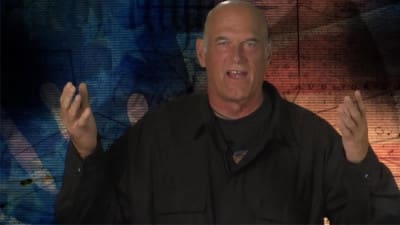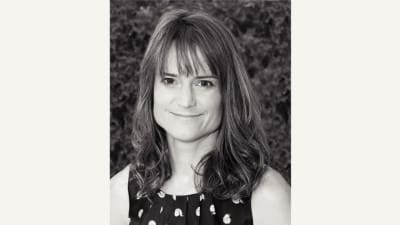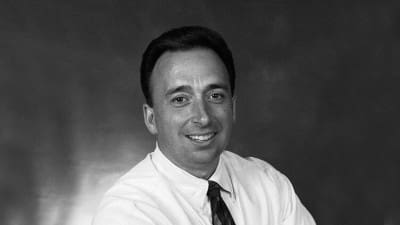Unable to find a publisher, Amanda Hocking took the fate of her success as an author into her own hands and released her YA troll princess tales as eBooks through Amazon. Although price points varied from 99 cents to $2.99, the results were astounding: 1.5 million copies sold. That success didn’t go unnoticed, as St. Martin’s Press signed her to a deal reportedly worth over $2 million in 2011, and her bestselling Trylle series got optioned for two films.
Call Hocking the darling of the DIY movement or the leader of the digital publishing revolution, but don’t dare call her an overnight success.
Also on Mediabistro
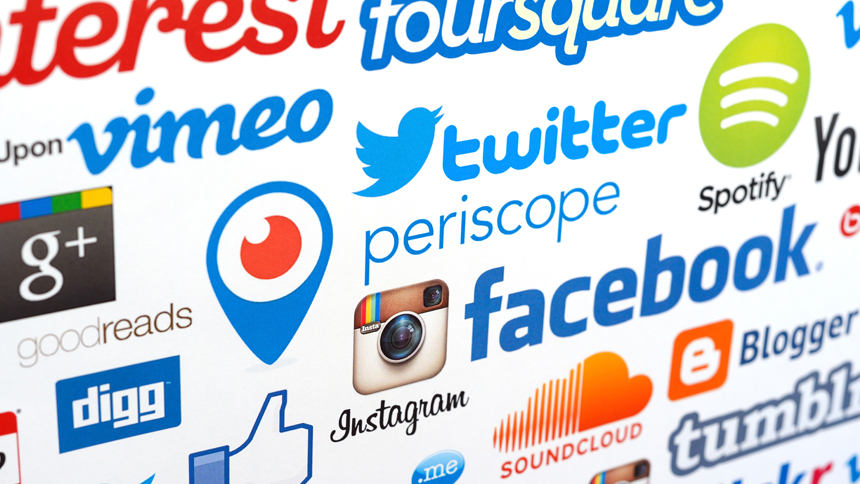
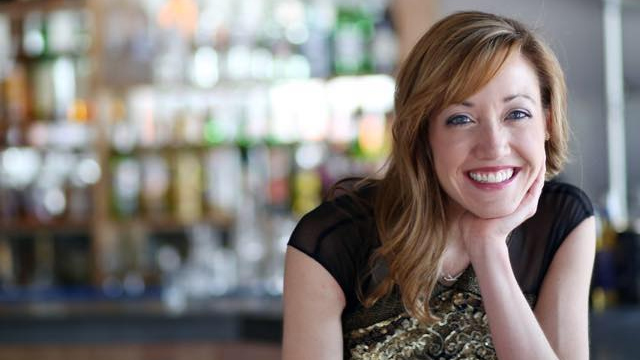
“I worked really hard at this for my entire life. I was trying to get published for nine years before I started selling books, and I have been writing literally since I could write,” Hocking told us. “And I think that a lot of people are missing that, because I think they see self-publishing as, ‘Well, you could just click and upload it, and then that’s it.’ There’s a lot of time, energy and your heart that you put into it.”
Name: Amanda Hocking
Position: Author
Resume: Started writing novels at the age of 17 and turned to self-publishing at 25 when she was unable to find a publisher. Achieved breakout success with My Blood Approves in 2010; less than a year later, had seven books on USA Today‘s bestsellers list. Went on to sell 1.5 million copies. Joined St. Martin’s Press in 2011.
Birthday: July 12, 1984
Hometown: Austin, Minnesota
Education: High school, some college
Marital status: Single
Media Idol: Jim Henson “because he was an amazing person.”
Favorite TV shows: Southland
Guilty pleasure: Jersey Shore
Last book read: You’re Not Doing it Right by Michael Ian Black
Twitter handle: @amanda_hocking
What are the advantages and disadvantages of being with a traditional publisher?
Having a team of people that can help me do all of the stuff so I don’t have to is definitely an advantage. I was getting really bogged down and stressed out by all the little details that go into publishing a book on your own, and now there’s a whole team of people that did what I did. It’s much easier. I can just focus on writing a book, and then I can just send it to them, and if I have problems and stuff, I can tell them.
I guess the disadvantage is that I have lost control over things. I have input and everything, but I don’t get to decide how much things are priced for or when they come out. I don’t mind it, but I know that for other people that would be a bigger issue. So, it was a trade that works for me.
I’m still involved with the publicity and the marketing but they set it up. They made a website, and they set up the campaigns, and they do the commercials. They’ve done really great marketing for me that I wouldn’t have been able to do on my own; they had a big spread event in a “Hunger Game Special Edition” for People magazine. And they did commercials on MTV. That stuff I wouldn’t have been able to do myself or know how to do.
Before the launch, I was having pre-wedding jitters. I panicked because somebody else’s book was selling better and I was freaking out. Because if this didn’t work, if my book really bombed, it would have ruined everything I had set up. I just had a meltdown; I was really stressed out but everything worked out.
Many digital authors are trying to get where you are but are failing miserably. What are they doing wrong?
A lot of authors tend to over market or they don’t take criticisms very well. They think that their book is perfect. They don’t want to get bogged down with editing or covers, because they think their book is so good. Or they market too hard. All they do is talk about their book and nobody wants to hear, “Buy my book.” They want to have a conversation with you.
Right now, the market’s gotten really saturated, and there’s so many books that it’s hard to make them stand out. I was fortunate when I started publishing; the market was just starting to take off. I think that writers need to just focus more on writing and relax. I know it’s really hard when you’re publishing to separate yourself from it. In the beginning, I was obsessed with checking my sales every 10 seconds.
I think you need to take that deep breath and take a step back and focus on writing and just relax and be present on the Internet. If you are writing and you’re putting out something that’s good, I think eventually you will find an audience. It’s just a matter of how long it will take.
I think the biggest things that I see people do is becoming very spammy. Or they’ll comment on blogs and all they really say is, “Yeah, I agree with you because my book is like this.” They’re not adding anything to that conversation. They just immediately start talking about their book. I get tweets all the time from people that say, “Buy my book.” I know nothing about this person. I know nothing about their book. All they’re saying is to buy their book and I’m not going to do that. They’re just being obnoxious.
Also, new writers respond to negative reviews and have great catastrophic meltdowns. You can’t respond to reviews at all except to say “thank you for reading the book.” That’s the best you can do; otherwise, you’re just going to look bad even if the reviewer is totally out of line.
What did you do, step by step, to effectively build your fan base?
I think what ended up working the best for me is that I had a blog; I had a Facebook; I had a Twitter. I gave books away a lot too. I would give books to anybody who was willing to do a review, so they would start getting the word of mouth out there. And it started taking off from there.
I was also active on the Kindle Boards, but I think the best thing that I really did was just be present. I did [a theme-driven blog tour] Zombiepalooza in the first year and I had something going on every day. I had other writers contributing, and they were doing giveaways or short stories. There was 31 days of stuff and that was incredibly stressful. I think as far as being effective compared to the amount of stress it was, I don’t think it was worth it.
You need to be discerning too; if you’re hosting a blog tour, make sure it is entertaining content. My most effective techniques were talking to book bloggers and in giveaways. What I wouldn’t do again was Facebook ads. It didn’t really sell any more books.
What is your writing process like? How do you stay so prolific?
I speak about it for a long time before I even outline or anything else, and I always hand write my outline. I’ll start with notes; then I’ll start formatting the outline. And I’ll write usually about two or three outlines, so by the time I do write the book I’ve got the story completely mapped out in my head.
If I write less than 5,000 words, I’m disappointed. Normally, it’s between 5,000 to 8,000 words a day that I’ll write on average. I start writing usually pretty late in the day, like seven or eight at night or later than that. I think I started writing at night because I worked in the evenings. People can’t call. Everyone else is in bed. It’s just a matter of turning off the Internet and then I really have nothing to distract me.
A lot of entertainers and authors struggle financially, because they blow or mismanage their money when it comes in large sums. What was your strategy for handling such a large advance?
I knew that I didn’t want to blow it. I’m very conscious of the fact that I’m doing well right now, but at any time this can stop. I don’t want to be somebody who had a million dollars and then they are broke the next year.
So, I’m trying very hard to get myself out of debt. I want to pay for it in cash. And, then, I put a lot in savings. I’ve tried to, though, to help out friends and family. I donate to charity, and I think that’s hard for me to figure out a balance in regards to what to save, what to donate, and what to spend.
How did you land your agent?
I said on the Kindle boards that I didn’t have an agent and somebody suggested my agent Steve. I emailed him on a Monday, and by Thursday he responded. It was actually pretty quick. He’s been my agent ever since.
How did you land your movie deal? How involved will you be in the casting?
The movie deal started because Terri Tatchell, the screenwriter, emailed me in January of last year, and she said that she just read the books and she loved them. And she wanted to turn it into a movie. She approached me, and she seems really brilliant and really knows what she’s doing, and I really trust her with the project.
I have no idea how involved I will be in the casting or anything like that. I would rather not be super involved, though, because whoever gets cast, there are going to be people who say, “That’s not right; that’s not who it should be.” Whoever she picks will be great.
Where do you imagine you will be five years in the future?
I actually have no clue. I mean, it’s such a hard thing to picture, because five years ago I never would have pictured myself here. So, it’s really hard to say. I would like to be able to still be writing. I think in five years I’ll be writing, and I’ll be working on something, and hopefully people will still be reading it.
This interview has been edited for length and clarity.
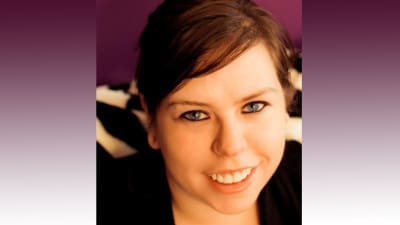

.png)



